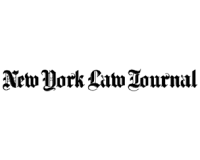Payments Made Pursuant to A Payment Plan Are Not Ordinary; Forbearing from Filing a Lien is Not Contemporaneous New Value
Dribusch v. Gross Electric (In re New York Light Energy, LLC), 2018 WL 4719007 (Bankr. N.D.N.Y. Sept. 28, 2018
New York Light Energy (“Light Energy”) filed for bankruptcy under Chapter 11 of the Bankruptcy Code. The case later converted to Chapter 7 and Christian Dribusch was appoint- ed as the Chapter 7 trustee. Dribusch sued Gross Electric (“GE”) to avoid two transfers made to GE in the 90 days prior to the bankruptcy. The payments were made pursuant to an affidavit in support of judgment by confession under which Light Energy agreed to pay GE $161,283.07 per month for eleven months for past due amounts plus interests. GE argued that the payments were not avoidable because in exchange for the payments GE delayed filing mechanic’s liens on the debtor’s property, which constituted a contemporaneous exchange for new value under 11
U.S.C. §547(c)(1). GE further argued that the payments were made in the ordinary course of business and are therefore not recoverable under 11
U.S.C. §547(c)(2). The Trustee filed a motion for summary judgment.
The Chapter 7 trustee argued that for- bearing from filing the mechanic’s liens does not constitute new value under § 547(c)(1). The Chapter 7 trustee further noted that even if GE did file the mechanic’s liens, the liens would be primed by the bank’s blanket liens and, therefore, the debtor did not receive any value as a result of such forbearance. The Court ruled that it need not determine the validity of either of these arguments as the evidence demonstrated that not only were the forbearance and transfers not contemporaneous, but the parties did not intend for it to be a contemporaneous exchange. Under §547(c) (1)(A), a transfer must not only be contemporaneous, but the parties must also intend for the exchange to be contemporaneous. The Court not- ed that the payments at issue were made at least two months after GE gave up its right to file its mechanic’s liens. Moreover, the Court point- ed out that the affidavit in support of judgment by confession contemplated payments being made over 11 months. The Court concluded that the anticipated payments over time combined with the time gap between the payments and when GE allegedly provided the new value (i.e., its forbearance of filing mechanic’s liens) demonstrated that the exchange was not contemporaneous and that the parties did not intend for the ex- change to be contemporaneous.
Turning to the ordinary course of business defense, the Chapter 7 trustee argued that it was not customary for Light Energy to provide affidavits in support of confessions of judgment and, moreover, such agreements were not customary in the solar pow- er industry. GE argued that the parties’ prior dealings indicated that they frequently discussed and agreed upon various payment schedules. However, GE failed to produce any prior agreement that was similar to the payment terms in the affidavit in support of confession of judgment. The Chapter 7 trustee further noted that emails ex- changed between Light Energy and GE before the preference period evidenced Light Energy’s consistent failure to make payment upon the agreed terms and GE’s multiple requests for such payments. Based on the foregoing, the Court noted that the parties’ prior dealings consisted of non-payment, late payments, and partial payments, leading for the first time to the affidavit in support of confession of judgment. The Court thus concluded that GE failed to raise a genuine issue of material fact in connection with the ordinary course of business defense. Taking it one step further, the Court found that the collection pressure combined with no prior payment plan under a confession of judgment between the parties evidenced that the payments were not made in the ordinary course of business. Thus, the Court grant- ed the Trustee’s motion for summary judgment to avoid the alleged preferential transfers.
COMMENTARY
The Gross Electric decision underscores the difficulties in establishing a contemporaneous exchange defense – as the defendant must demonstrate both parties intended the transfer to be contemporaneous and that the transfer was in fact contemporaneous. In addition, this case highlights that entry to into a special payment arrangement, such as a payment plan, will likely eliminate the possibility of succeeding on an ordinary course of business defense in the absence of a clear prior pattern of similar payment plans.















